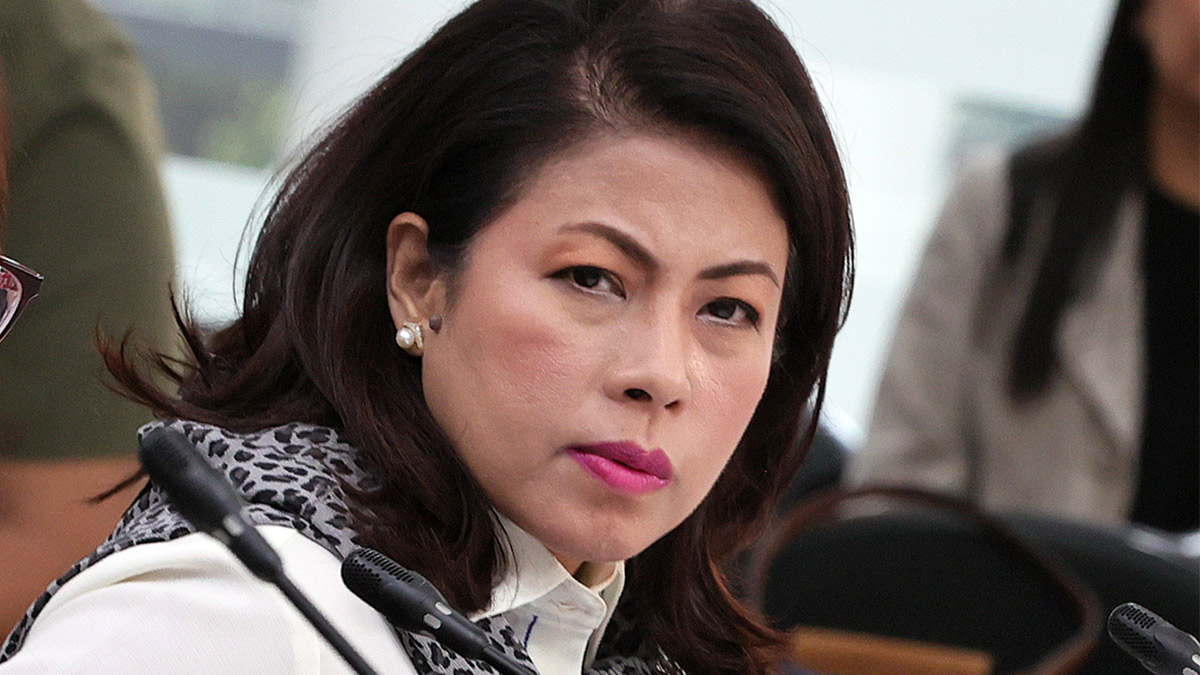
OVP Undersecretary and Vice President Sara Duterte’s chief of staff, Atty. Zuleika Lopez —Inquirer/Grig Montegrande
MANILA, Philippines — What is the extent of Congress’ power to detain its resource persons outside their facilities?
These questions, for legal experts, could eventually be challenged before the courts in light of the heated standoff between Vice President Sara Duterte and the House of Representatives, which sought to move her chief of staff Zuleika Lopez to the Mandaluyong Correctional Institution for Women (CIW) to serve her contempt citation early Saturday morning.
Human rights lawyer Chel Diokno pointed out that while the power of contempt is a “broad power, [whether] and how that power can be exercised could be subject to judicial review.”
“The place of detention—that issue may eventually reach the courts,” he said.
READ: House panel moves to cite OVP exec Lopez for contempt
The power of contempt is an inherent power by Congress to compel witnesses to testify or produce documents during legislative inquiries. It has been popularized recently by the House quad committee investigating criminal activities linked to the Duterte administration. It has cited dozens of resource persons in contempt for lying, refusing to attend, or refusing to answer lawmakers’ questions.
Persons cited for contempt are usually held in the House’s 16-person detention facility. However, some resource persons are held in city jails when the facility is full, or in the case of alleged offshore gaming shareholder Cassandra Ong, transferred to the CIW when facing multiple contempt citations.
‘Lawmakers, not judges’
Constitutionalist and policy consultant Michael Henry Yusingco said that while a 2023 Supreme Court ruling clarified the extent of Congress’ contempt powers, the Constitution does not allow it to render a penal punishment.
The CIW is a facility for convicted felons, as Lopez pointed out when she resisted being transferred. But the House said they merely wanted to move her to a facility with enough security to handle Duterte, who had insisted on staying with her throughout her detention.
Yusingco said Congress does not even have the power to detain persons outside their headquarters “just by the very definition of who they are.”
“They are lawmakers; they are not judges. So the proceedings that they do are legislative in character and purpose; it’s not a criminal proceeding. And therefore lawmakers cannot render any penal punishment—so they cannot send anyone, detain anyone in a prison,” Yusingco said.
This is why, he added, the 2023 ruling was clear about the limitations of the contempt powers of Congress.
The ruling said that while Congress is not precluded from compelling its resource persons or witnesses to appear in its proceedings, its powers of legislative investigation are subject to three limitations: 1) it must be in “aid of legislation”; 2) conducted in accordance with its duly published rules of procedures; and 3) the rights of persons appearing in or affected by such inquiries shall be respected.
Detention must also only last until the termination of the legislative inquiry, the Supreme Court said.
Sought for comment, House Secretary General Reginald Velasco maintained that Lopez was treated well and not subjected to any ill-treatment.
“Claims of a delayed response are unfounded … After receiving a clean bill of health at VMMC (Veterans Memorial Medical Center), Atty. Lopez was later transported to St. Luke’s Medical Center by OVP (Office of the Vice President) staff for further evaluation. She was declared stable and subsequently returned to VMMC, accompanied by House representatives to ensure her safety,” Velasco said.